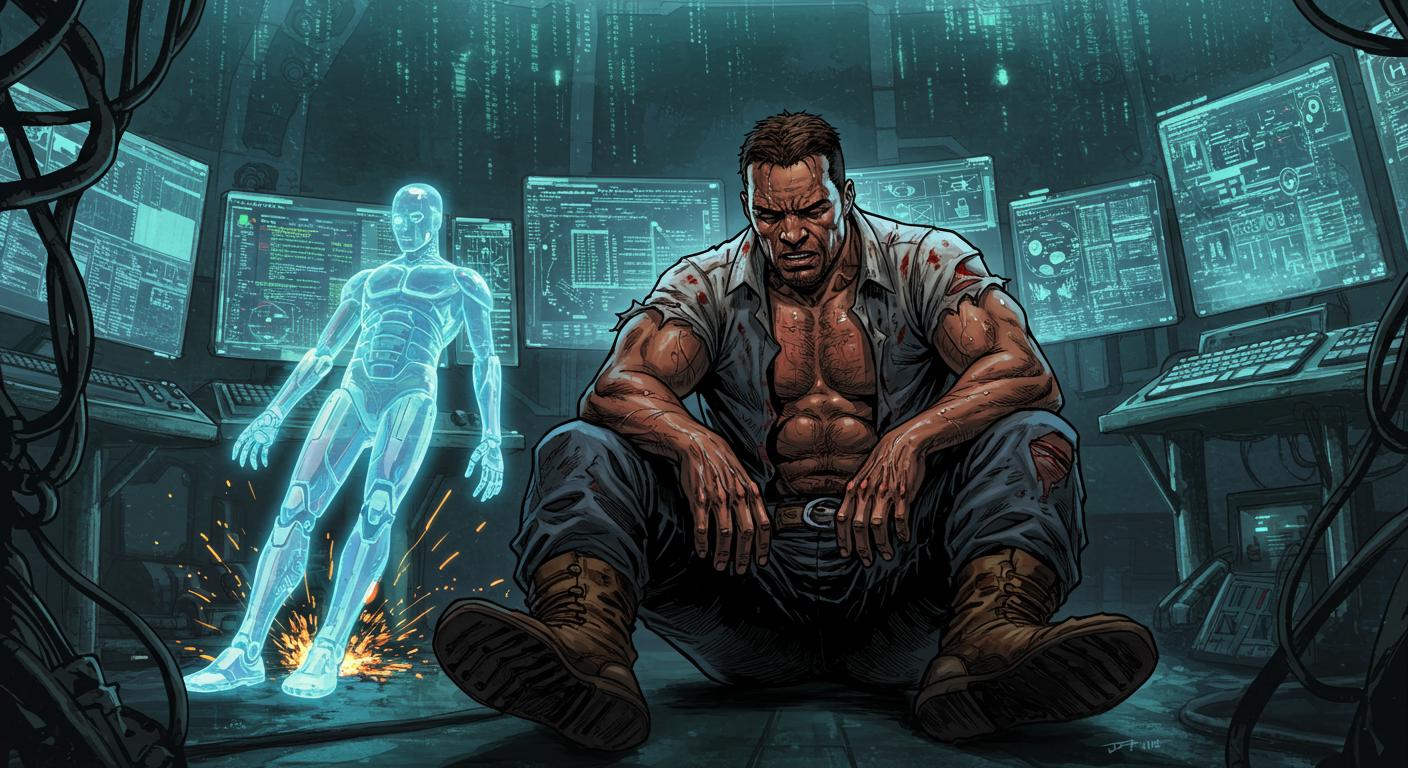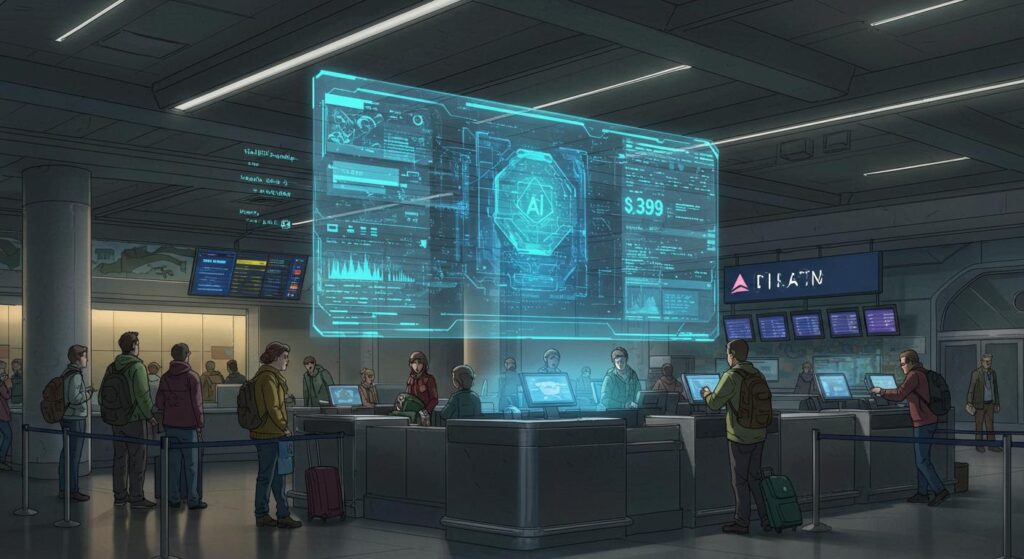As feats of human endurance go, most of us picture grueling marathons, Arctic expeditions, or perhaps particularly lively library inventory days. But in Tokyo this week, a different kind of ironman match played out—hours not on foot, but at the keyboard, as a sleep-deprived Polish programmer squared off against an AI model from OpenAI in a coding contest that blended logic, strategy, and just a dash of folklore-worthy grit.
Humanity’s “For Now” Win
Przemysław Dębiak, better known to the competitive coding world and, evidently, internet history as “Psyho,” emerged at the top of the 2025 AtCoder World Finals Heuristic Contest. As chronicled by Ars Technica, Dębiak managed to outscore not just eleven of the world’s sharpest human coders, but also a custom OpenAI model engineered for the event—a machine unburdened by nerves, hunger, or any desperate need for caffeine.
The contest, as detailed in Ars Technica’s reporting, wasn’t for the faint of heart (or short of snacks). Competitors, human and digital alike, were presented with a single, mammoth optimization riddle—a puzzle so challenging that perfect solutions don’t exist, just increasingly creative “good enoughs.” Over ten relentless hours—on identical hardware, with complete programming language freedom, and a mandated five-minute wait between submissions—Dębiak eked out a roughly 9.5 percent lead over his silicon counterpart. “Humanity has prevailed (for now!),” he posted afterward, recounting being “completely exhausted” and “barely alive” after tallying about ten hours of sleep in three days.
If this conjures up echoes of John Henry racing a steam drill—right down to the bittersweet edge—it’s not accidental. Ars Technica explicitly connects Dębiak’s story to Henry’s, noting our enduring fascination with human-versus-machine contests, whether on the chessboard, quiz show, or, apparently, the digital proving grounds of algorithmic problem-solving. Here, though, victory hinged on stamina, wits, and a perhaps unhealthy relationship with coffee.
The AI Enters the (Programming) Arena
OpenAI, for its part, handled the defeat with a measure of public grace. As reported by The Times of India, CEO Sam Altman directly congratulated Dębiak via X, writing “good job psyho.” The company itself acknowledged the outcome, noting, “Our model took 2nd place at the AtCoder Heuristics World Finals! Congrats to the champion for holding us off this time.”
The context, as highlighted by Ars Technica’s summary of OpenAI’s public remarks, is that the AI’s second-place finish is itself noteworthy. The model, a custom variant akin to OpenAI’s o3, outpaced 10 world-class human programmers, a result OpenAI described as a “milestone for AI models in competitive programming.” The event provided OpenAI a way to test how well their models can reason strategically, plan, and iteratively improve solutions over long time spans—skills traditionally associated with human thinking.
Yet even as OpenAI celebrates, the result is laced with an awareness that the game is rapidly changing. In a detail cited by Ars Technica from Stanford’s 2025 AI Index Report, the outlet reports that AI systems leaped from solving just 4.4% of coding benchmarks in 2023 to a staggering 71.7% in 2024. The same article also references GitHub’s 2024 developer survey, in which more than 90 percent of developers reported using AI coding tools in their workflow. Despite this adoption, a separate study noted by Ars Technica suggests that the time-saving impact of AI assistance for coding might be less dramatic than developers perceive.
Old-School Endurance, New-World Rules
What made Dębiak’s win so compelling? In part, as described throughout the Ars Technica report, it’s the contest’s exclusivity and the level playing field. The AtCoder World Finals is strictly invitation-only, reserved for just a dozen top global programmers based on year-long rankings. The rules aimed for total fairness: every participant used the same hardware, any programming language from the AtCoder arsenal was allowed, and rapid-fire guessing was curbed by a five-minute cooldown for solution resubmission.
Despite the AI’s ability to tirelessly hammer away at the problem, Dębiak had to fight through mounting fatigue and sleep deprivation—a fact he documented with no small sense of disbelief (and bleary-eyed humor) on X. “Honestly, the hype feels kind of bizarre,” he admitted, surprised to see a coding duel spark a global media moment.
Not Quite the End of the Race
It’s telling that Dębiak, himself a former OpenAI employee, resisted the urge to declare this a conclusive victory. The “for now” in his statement, as well as his open recognition of the challenge at hand, conveys the temporary nature of such triumphs. As Ars Technica notes, this win is less an emphatic “end of history” moment and more a fleeting, almost folkloric data point on a landscape where machine progress is, if anything, accelerating.
One can’t help but wonder what comes next. Will future coding competitions evolve into collaborative events, merging human intuition with relentless machine iteration? Or is the time approaching when even coffee-fueled tenacity can’t keep pace with digital reasoning? And—pardon the logistical tangent—should there already be a line of sports drinks tailored for marathon programmers?
For now, the world still has room for a champion like Psyho—not superhuman, but all the more triumphant because of it. The future may belong to hybrid teams or omnipresent codebots, but sometimes, for one long day, humanity gets to keep the cup. Or at least, the coffee mug.







